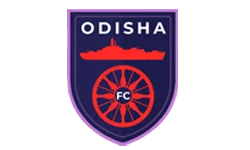One of the most unpleasant feelings to wake up to is a hangover. Hangover gives a pounding headache, dry mouth, and an overwhelming sense of regret after a night out. Anyone who parties hard has experienced a hangover at some point but very few of us know exactly what a hangover is. Why does it happen, and is there any science behind that misery? In this blog we will deep dive into the science behind hangovers.
To put it very simply, a hangover is a collection of unpleasant symptoms that follow the consumption of alcohol. Headaches, nausea, exhaustion, light and sound sensitivity, lightheadedness, and parched throat are some of these symptoms. Basically, it's your body's way of telling you that last night you had a little too much (1).
Ethanol in alcohol is the primary cause of a hangover. Ethanol is the intoxication part of any alcoholic drink. When you consume alcohol, your body has to work extra hard to metabilise and eliminate it. This results in a variety of biological responses that contribute to those dreaded morning-after effects. Other factors who contribute to a hangover are dehydration, electrolyte imbalance, gastrointestinal distress, and immune responses.
Alcohol is a diuretic, meaning it makes you urinate more frequently. This leads to dehydration, a major culprit behind that awful headache and dry mouth. Dehydration is also responsible for weakness and dizziness.
Electrolytes are important for the body to perform various functions. Your body also loses electrolytes through urination which leads to electrolyte imbalance in the body. This electrolyte imbalance can lead to muscle cramps, fatigue, and general malaise.
Toxin accumulation in the liver is a more severe effect of health of a hangover. Basically, Alcohol gets converted into acetaldehyde which is a toxic compound that gets deposited in the liver causing harm to the liver.
Alcohol can also make your stomach upset. It can increase the production of acid in your body leading to nausea and vomiting.
A hangover can last anywhere between 8 to 24 hours. Factors the influence the length of a hangover are alcohol consumed, your hydration level, sleep quality, and individual tolerance. Some people are genetically predisposed to longer and more severe hangovers.
When it comes to hangovers not all alcoholic drinks affect the same. Congeners which are minor compounds naturally found in alcohol are the hidden culprit for the severity of a hangover. Drinks high in congeners like whisky and red wine are often more likely to result in severe hangovers compared to clearer spirits like vodka or gin. Sugary mixture can also increase the severity of hangover due to rapid spikes and drops in blood sugar levels.
While occasional drinking leads to a hangover which can be managed by drinking lots of fluids and taking a rest. Long term effects of alcohol include heart damage, liver damage, pancreatitis and cancer.
Drink plenty of water, fluids or anti-hangover supplements after consuming alcohol. Anti-hangover tablets are great to cure hangovers. Look for hangover tablets which you can consume with water to take care of your dehydration. Look for electrolytes in hangover tablets as maintaining electrolyte balance is very important after a hangover.
Consume foods rich in carbohydrates, fats, and proteins. Eating right type of food can help you reduce hangover by slowing down alcohol metabolism.
Remember not every alcoholic drink is the same, some cause more hangovers than others. Gin and vodka are best for avoiding severe hangover while whisky is the worst.
Take your time and enjoy drinking alcohol instead of binge drinking. This gives your body the chance to metabolise alcohol properly.
Make sure you get enough rest after you are done drinking. Your body recovers best when you are asleep. So, make sure you clear your morning schedule for resting.
Conclusion
Hangover is the result of excessive alcohol consumption. Hope this blog has helped you to understand the science behind hangovers for you to make a more informed decision next time you go to a party. Limiting your alcohol consumption is the best way to avoid a hangover but there are other simple strategies which can help you cure hangover. Remember to stay hydrated, eat proper food and rest to minimise the effects of a hangover.
FAQs
1. What is the chemistry behind a hangover?
The chemistry behind a hangover is simple. It is a combination of dehydration, electrolyte imbalance, and the toxic effects of acetaldehyde (alcohol's byproduct).
2. Why does a hangover happen?
A hangover happens due to due to excess drinking of alcohol which results into dehydration, acetaldehyde toxicity, sleep disruption, and nutrient depletion from alcohol.
3. Is hangover just dehydration?
No. Hangover is much more than dehydration. It also involves headache, nausea, and fatigue.














